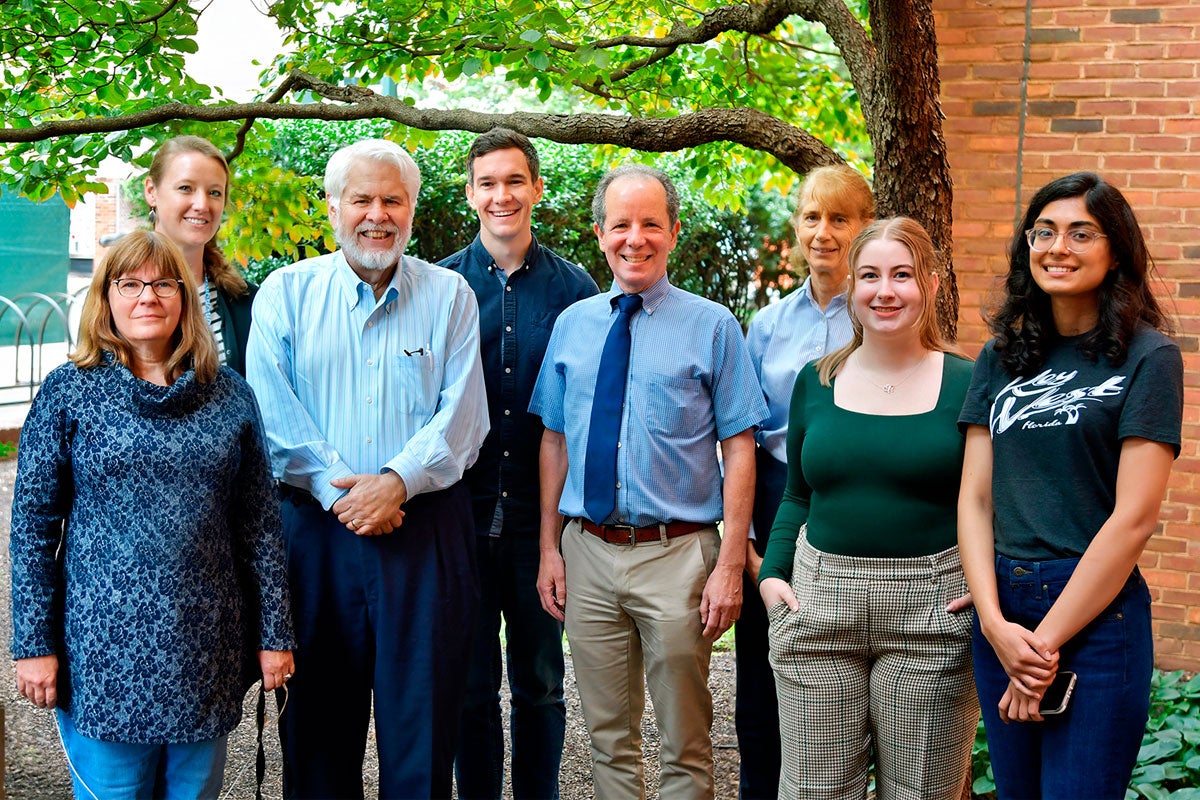
Members of the Teague and Borish labs at UVA School of Medicine.
School of Medicine researchers have discovered a novel clinical syndrome in children with recurrent wheeze — an asymptomatic or “silent” rhinovirus (RV) infection in the lungs accompanied by inflammation. The syndrome has major implications on cough and wheeze in young preschool children and may be associated with the development of asthma but is potentially treatable.
Rhinovirus is the most important trigger for wheeze episodes in young children and wheeze with RV is a risk factor for asthma. However, little is known about how RV affects lung inflammation in children with recurrent wheeze.

W. Gerald Teague, MD
“Recognition of this novel syndrome ‘silent’ RV associated lung inflammation is important in understanding why some children treated with standard care for wheeze do not improve and which ones are at risk for the development of childhood asthma,” states W. Gerald Teague, MD, a professor and mucosal immunology researcher in the Department of Pediatrics, Division of Respiratory Medicine, Allergy, Immunology, and Sleep.
Dr. Teague and Larry Borish, MD, a professor of medicine and microbiology, studied 616 children with recurrent wheeze who underwent diagnostic bronchoscopy. Even though they had no symptoms of a common cold, 30% of the sample had RV in the lung fluid, which was accompanied in most cases by an increased number of inflammatory cells in the lung.
“Current guidelines emphasize inhaled corticosteroids as front-line treatment of recurrent wheeze in preschool children,” Teague said. “In this study, preschool (< 6 years) children had little evidence of corticosteroid-responsive lung inflammation. Instead, the pattern of inflammation was strongly predominated by pathogen-driven responses.”
The next step for the researchers is to understand why these children do not clear the virus from their lungs, especially if there is a problem with the innate anti-viral response in children at risk for wheeze.
The study is scheduled for publication in the Journal of Allergy and Clinical Immunology. Click here for an advance copy of the article. Authors are W. Gerald Teague, Cameron D. Griffiths, Kelly Boyd, Stella C. Kellams, Monica Lawrence, Thomas L. Offerle, Peter Heymann, William Brand, Ariana Greenwell, Jeremy Middleton, Kristin Wavell, Jacqueline Payne, Marthajoy Spano, Elaine Etter, Brittany Wall, and Larry Borish.
Read UVA Health press release from August 6, 2024.
Filed Under: Research
